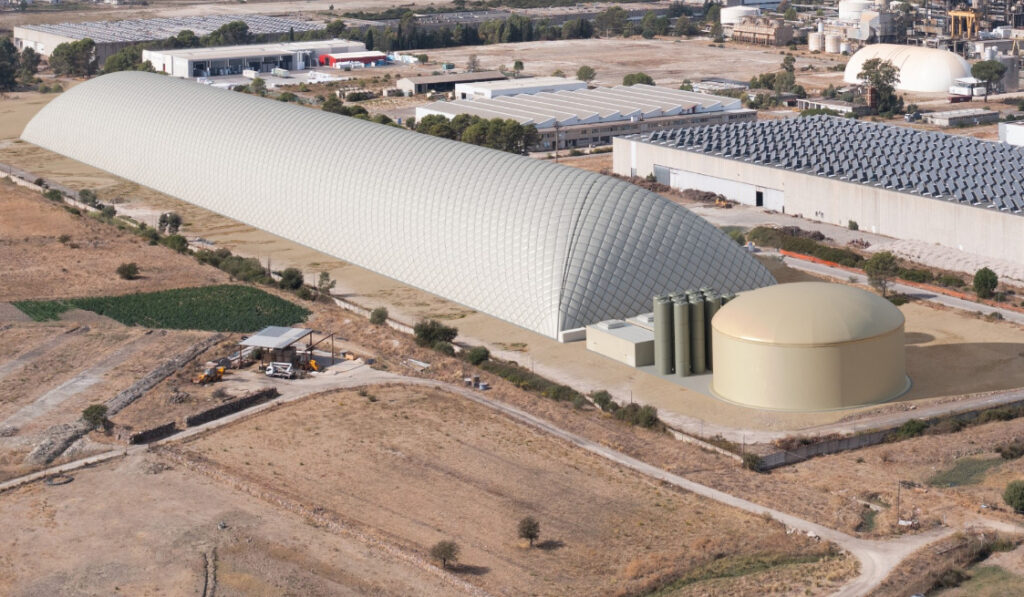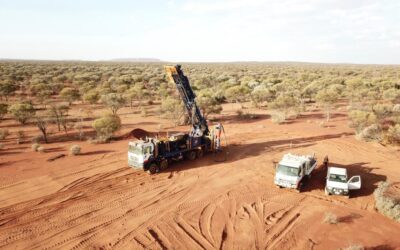
US utility company Alliant Energy has moved forward with a long-duration energy storage (LDES) project based on Energy Dome’s carbon dioxide-based (CO2-based) technology.
Alliant Energy said last week (14 August) that it has filed a project application with the regulatory Public Service Commission (PSC) of Wisconsin for its Columbia Energy Storage Project, an 18MW system with 10-hour duration (180MWh capacity).
The Energy Dome CO2 Battery is a set of gas compression and turbine equipment housed, as the company’s name suggests, inside a dome-like structure.
It stores energy based on the adiabatic compression of carbon dioxide, which is liquified during charging and evaporated as it discharges. Heat given off during compression is stored and used to expand the gas, driving turbines to generate power.
Try Premium for just $1
- Full premium access for the first month at only $1
- Converts to an annual rate after 30 days unless cancelled
- Cancel anytime during the trial period
Premium Benefits
- Expert industry analysis and interviews
- Digital access to PV Tech Power journal
- Exclusive event discounts
Or get the full Premium subscription right away
Or continue reading this article for free
The Alliant Energy project, for which construction is planned to begin in 2026 and reach completion by the end of 2027, is being developed by a coalition of companies that include two other Wisconsin utilities along with oil and gas major Shell’s Shell Global Solutions US arm, the US Electric Power Research Institute (EPRI) and two academic institutions.
In September 2023, the Columbia Energy Storage Project was among 15 long-duration storage projects selected to each receive a share of US$325 million in funding from the US Department of Energy (DOE). This was part of the department’s Office of Clean Energy Demonstrations’ (OCED’s) efforts to progress significant cost reductions in LDES technologies with potential to scale.
‘Increasing energy security and strengthening the grid’
Energy Dome was founded by Italian inventor and entrepreneur Claudio Spadacini, who aimed to combine off-the-shelf technologies and processes from existing industries to create an LDES solution that can be easily scaled and cheaply manufactured and installed, as well as safe to use.
The company has one existing commercial demonstration plant in Sardinia, Italy. It is also building a 20MW/200MWh project on the southern Italian island, which it closed financing on in 2023.
Energy-Storage.news Premium subscribers can read our interview with Ben Potter, Energy Dome’s senior VP of strategy, corporate development and investor relations, from March this year.
Potter discussed the company’s various business models including its build, own and operate (BOO) development of projects and tolling agreements with offtakers, a year on from a more wide-ranging ESN Premium interview in 2023, in which he introduced the company and its technology, claiming that it can be cheaper than lithium-ion battery storage when scaled and replicated.
While the mention of CO2 as a medium might raise climate-conscious eyebrows, the CO2 Battery’s use of 2,000 metric tonnes of CO2 per 100MWh is a “low volume” of the gas, which can be easily dispersed, Potter said.
“Innovative systems like the Columbia Energy Storage Project are increasing energy security for our customers and strengthening our nation’s power grid,” Alliant Energy director of technical solutions and federal funding, Mike Bremel, said.
The utility is targeting a 50% reduction in greenhouse gas (GHG) emissions relative to 2005 levels by 2030, elimination of coal from its generation fleet by 2040 and achieving net-zero emissions from its utility operations by 2050 under its Clean Energy Vision plan.
“This is a pivotal moment in our transition toward more reliable, sustainable and cost-effective energy solutions,” Alliant Energy VP of strategy and customer solutions Raja Sundararajan said.





